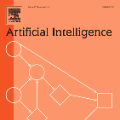Generative Artificial Intelligence (GenAI) is reshaping higher education and raising pressing concerns about the integrity and validity of higher education assessment. While assessment redesign is increasingly seen as a necessity, there is a relative lack of literature detailing what such redesign may entail. In this paper, we introduce assessment twins as an accessible approach for redesigning assessment tasks to enhance validity. We use Messick's unified validity framework to systematically map the ways in which GenAI threaten content, structural, consequential, generalisability, and external validity. Following this, we define assessment twins as two deliberately linked components that address the same learning outcomes through different modes of evidence, scheduled closely together to allow for cross-verification and assurance of learning. We argue that the twin approach helps mitigate validity threats by triangulating evidence across complementary formats, such as pairing essays with oral defences, group discussions, or practical demonstrations. We highlight several advantages: preservation of established assessment formats, reduction of reliance on surveillance technologies, and flexible use across cohort sizes. To guide implementation, we propose a three-step design process: identifying vulnerabilities, aligning outcomes, selecting complementary tasks, and developing interdependent marking schemes. We also acknowledge the challenges, including resource intensity, equity concerns, and the need for empirical validation. Nonetheless, we contend that assessment twins represent a validity-focused response to GenAI that prioritises pedagogy while supporting meaningful student learning outcomes.
翻译:暂无翻译



